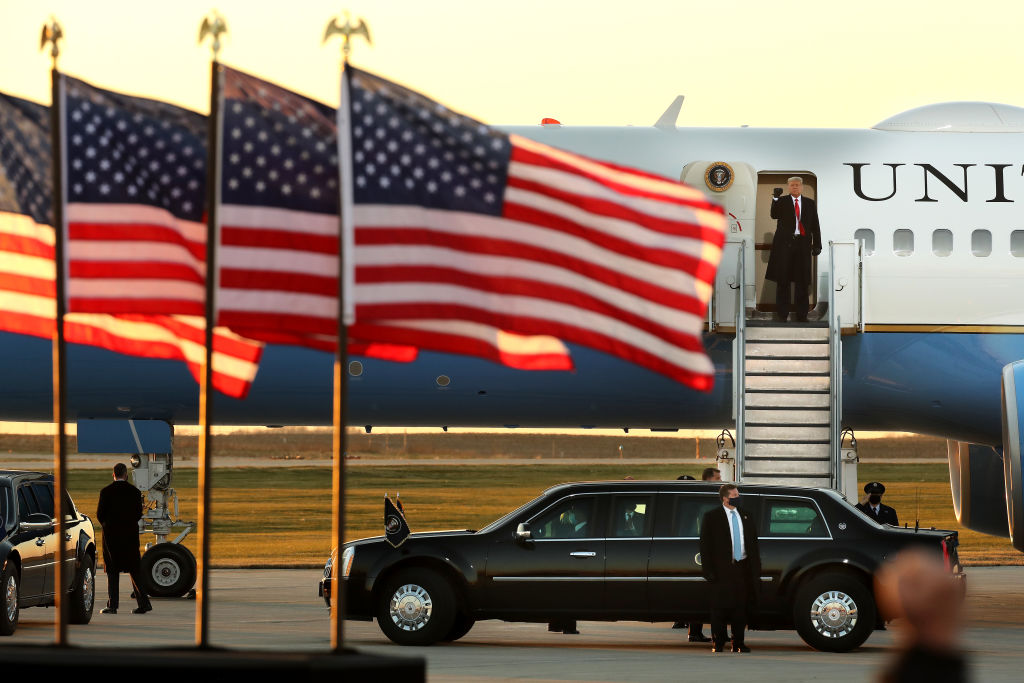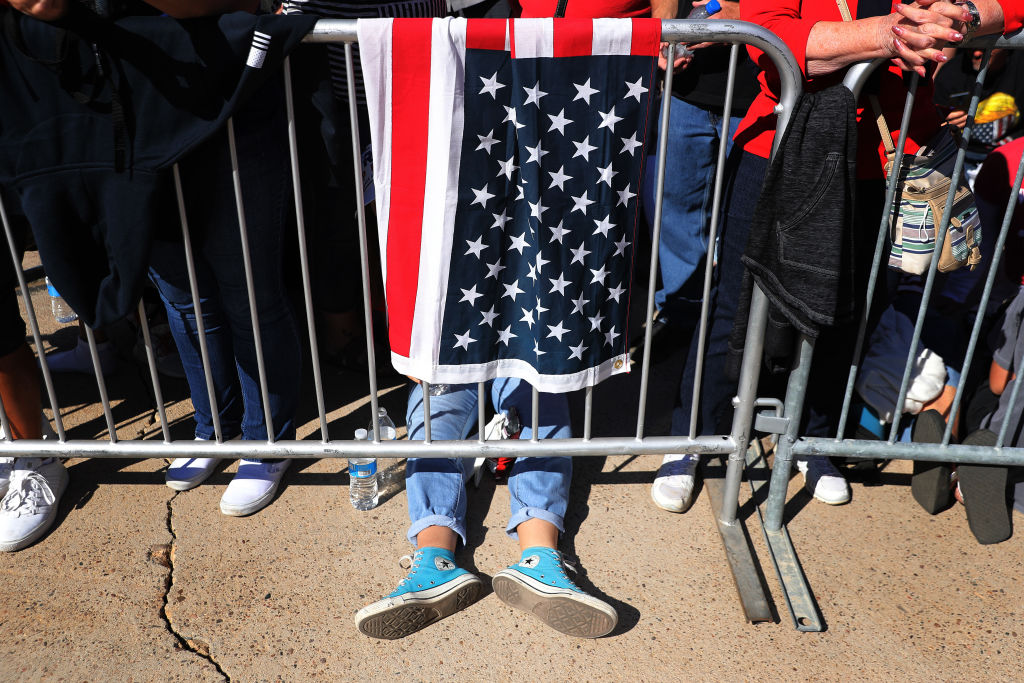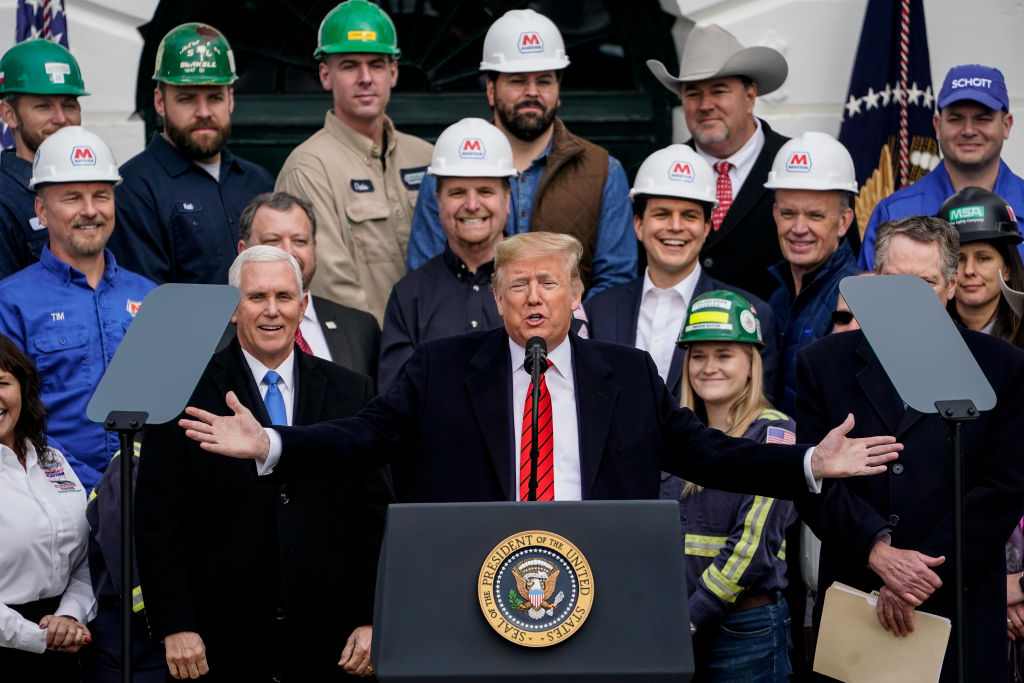After graduating from Harvard in 1974, Steven Pitts got a factory job, in which he was active in the United Steelworkers. But after eight years working at an oil tool manufacturer in Houston, Texas, he got laid off when the oil industry collapsed. He launched his second career with a PhD in economics. Since 2001, he’s been a labor policy specialist with the University of California, Berkeley’s Labor Center.
Capital & Main caught up with Pitts less than a month before his retirement to talk about the work that has defined his career: understanding the crisis affecting Black workers and how to address it. Pitts has focused on the lack of good jobs, which he says is an underappreciated dimension of that crisis.
“That frame is important because oftentimes people look at just the unemployment issues and they don’t look at the question of job quality,” says Pitts. “The key solutions aren’t just servicing solutions, but are really organizing solutions, because the problems stem from the lack of power, not the lack of individual skills.”
At the Labor Center, he has published numerous reports on issues impacting Black workers, launched a union leadership school and helped to incubate the National Black Worker Center Project, a network of training and leadership development organizations. Our conversation touched on the challenges Black workers face in the labor market, how they have fared during the COVID crisis and how the labor movement should respond to police unions that shield rogue officers from accountability. (The interview was edited for brevity and clarity).
Capital & Main: What’s the connection between the mass protests over police brutality and the systemic racism that African-American men and women confront in the labor market?
Steven Pitts: If you think of the Black experience as being a function of both white supremacy and capitalism, [those forces] affect Black folks through a variety of institutions: labor markets, education, health care, housing, the criminal justice system. So what you have is simply a variety of ways where we see Black oppression manifested. That’s the underlying context.
What challenges have Black workers been facing in the workforce even before the COVID crisis?
We’ve seen since the mid ’70s across the board rising inequality and the collapse of quality work for people in this country. On top of that, you’re seeing the persistence and the racial differences [between Black and white workers].
“Oftentimes people look at just the unemployment issues and they don’t look at the question of job quality.”
Look at the unemployment rates, for instance, comparing Blacks to whites. It’s been roughly at a two to one ratio, gosh, [for] 50 years…What’s equally true is the worst unemployment rates for whites [are still lower] than the best Black [unemployment] numbers. So you have consistent racial disparities in the labor market.
We could walk through the other dimensions of the job market. Look at wages, look at occupational placements, at benefits on the job, at the nature of the job itself. We see a racial difference there.
One thing that amplifies the difference for Black folks has been the issue of mass incarceration. For some immigrants, who lack documentation, that’s their pathway into bad jobs, not having documentation. For many Blacks , the pathway is the criminal justice system.
How has COVID exacerbated these trends for African American workers?
You can think of three types of workers in a broad sense. You have those workers who can work from home. You have those who are essential [and] got to stay on the job, [and] those who can’t work from home, aren’t essential, and are out of work. So the important thing to look at is how race plays throughout all those categories, not just the unemployed.
Those who can simply Zoom away during COVID are disproportionately non-Black. If you examine the essential workers—the doctors, the food service workers, the first responders, as you get higher up the occupation status chain, they become less Black.
With respect to the unemployed, it is hard to get a good reading on how COVID has impacted the traditional racial disparities. Official unemployment rates always underestimate joblessness; these statistical issues have been magnified by the difficulties in accurately surveying the population during COVID.
We’re heading into a time of scarcity and local governments are losing tax revenues due to the stay at home orders and the COVID crisis. How do you think that will impact African-American workers?
It’s really important to note that this time of scarcity is not God-given, nor COVID-given. It’s a conscious action on the part of the federal government not to support local governments. That’s really superimportant. This world could be different under a different political regime and different set of political forces.
So that’s a great segue into my next question: What does an equitable recovery look like?
I think there are three elements to an equitable recovery. First, you need to actually start a recovery…because you can’t have a Black recovery without an overall recovery. Second, the recovery steps need to be tailored to address the disproportionate burden felt by the Black community…For instance, the burden from high Black unemployment or the burden felt from a COVID-induced housing crisis that hits Black folks particularly hard. Third, the recovery needs to be transformative. Things weren’t good for most Black folks before COVID; we don’t need to go back to a pre-COVID economy. We need a society where money shifts from police to social services, and where health care is a right, not a privilege. We need a society where we address the climate crisis. We need a society where anti-racism is a value that is hard-wired into every policy and practice and where workers have control over their working conditions.
One of the things the Black Lives Matter movement has sought to lift the veil on is how the greatly disproportionate number of police killings of Black people are the consequences of police culture as well as policy. How does discrimination against African-Americans in the labor market get addressed?
I don’t like separating culture from policy and power. Because when we do that, that makes it very much of an individual situation…. Look what happened in Atlanta [with the police killing of Rayshard Brooks, a 27-year-old black man found asleep in his car at a Wendy’s drive thru]. You would think that fool [fired police officer Garrett Rolfe] would know better than shoot somebody during this time period. Right? And that’s not a matter of culture… We need to go beyond the idea of individual training and look at larger systems and power dynamics.
“The question is how do you get the ones who aren’t lost causes to behave differently? …It comes from political struggle.”
That’s particularly important in the context of the labor market. The chief thing is not how do you get employers to behave better in hiring, but how do you reduce the power to discriminate. It could be that we need to have guidelines. It could be a matter of hiring halls in appropriate settings….The approach of [simply addressing] culture or training says, in economic language, how [can] I change the preferences of the employer? I’m saying I want to spend less time on that and more time on constraining their behavior which is the function of laws and unions.
So that brings me to unions, which have been an important vehicle for creating middle class jobs for Black workers. But police unions have shielded officers from accountability for violence against Black residents whom they are meant to protect. How should the broader labor movement be thinking about police unions right now?
It is a moral imperative for the labor movement to support the Movement for Black Lives and the rising protests against police murders. They just have to. With respect to police unions, labor unions must take aggressive steps to curtail the behavior of cops. They need to identify the actual practices, be they in terms of collective bargaining or other arenas that protect racist police and give the police unions an ultimatum: Change these practices or get expelled from the AFL-CIO. Just as the labor movement eventually did not tolerate unions that had formal barriers against Blacks joining, the labor movement should not tolerate unions that use their power to kill. The AFL-CIO needs to say: “Union A: if you don’t change these practices, we will throw you out!”
This pathway is important for a couple of reasons. First, the focus must stay on stopping the behavior that allows the police murder of Blacks. Symbolic actions might not directly result in new behavior. Second, many union members support what police unions are doing, and this support is the oft-unspoken reason for unions’ hesitation to speak out forcefully. Look…we know that Trump has a lot of support among union rank-and-file. Some are lost causes. But some aren’t. So the question is how do you get the ones who aren’t lost causes to behave differently? …It comes from political struggle. It comes from conversations. I don’t think it comes from symbolism. It comes from the green shoots of protest in unusual areas. This campaign against police murder should be one in which marches and civil disobedience is combined with effective educational work designed to expand the numbers of union members protesting police brutality.
Copyright 2020 Capital & Main





